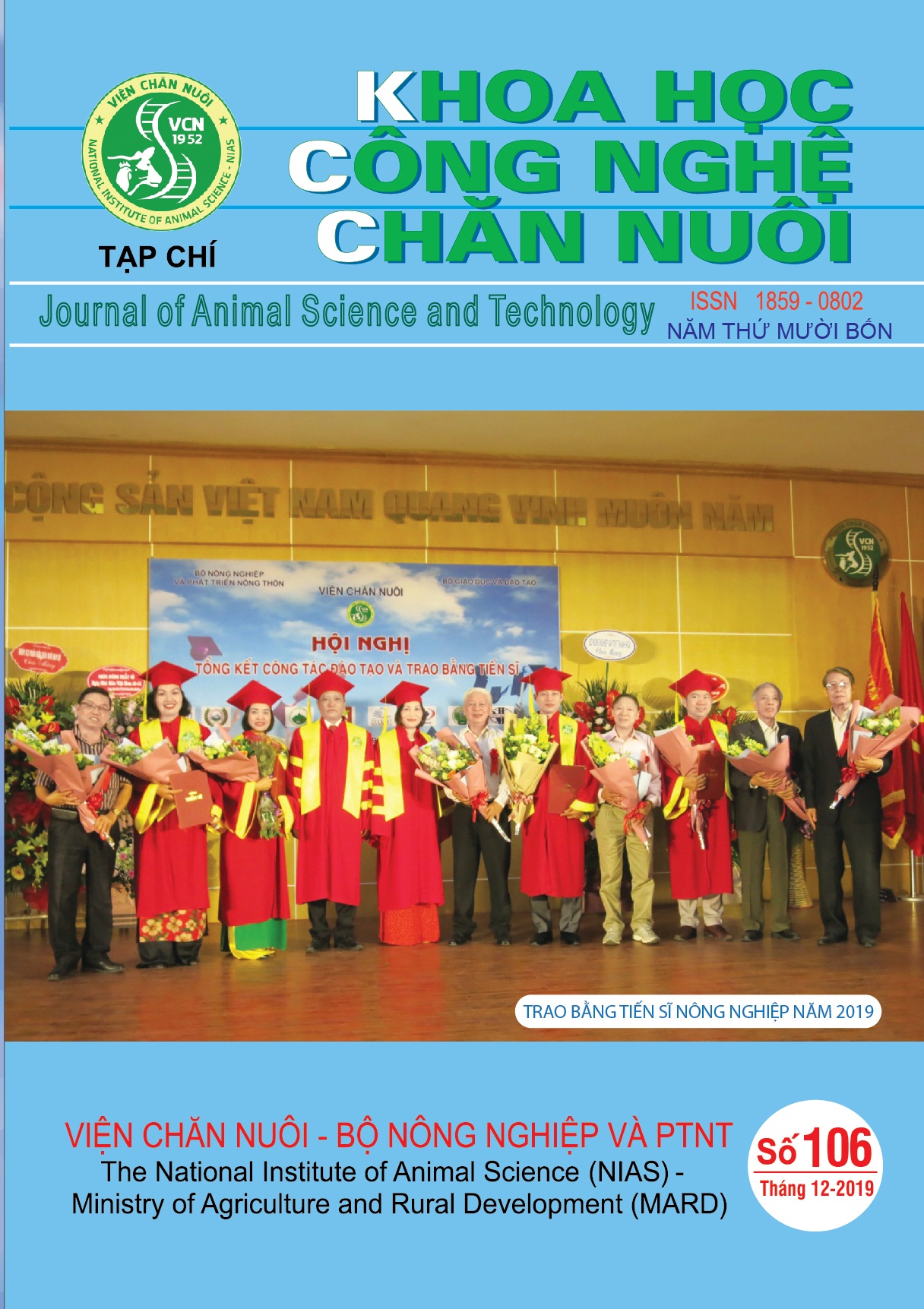Role of probiotic microorganisms in gastrointestinal ecosystem and effectiveness of using probiotics in livestock production
Probiotics are live microorganisms which when administered in adequate amounts will bring a beneficial effects for the host. In animal nutrition, probiotics are used as a feed additive in order to improve of the intestinal microbial balance, increase feed conversion rate especially in young animals when their intestinal microbiota is not fully developed. This review paper summarized literatures on the role of probiotics in modulation of the balance of intestinal microbiota and the effects of using probiotics in pig, poultry and ruminant production as well. We reviewed the research results regarding with the effectiveness of probiotics in increasing digestibility, improving feed conversion rate and preventing diarrhea in pig production. The effects of probiotics supplementation in poultry diets for purposes of inhibiting pathogenic bacteria such as Salmonella, E. coli, Clostridium perfringens, Campylobacter jejuni; decreasing the smell in the poultry farms and improving the feed conversion rate were also reviewed. Moreover, this paper has also assessed the effects of using probiotics in ruminant production in the fields of increasing of milk production, reducing of rumen acidosis, improving body weight gain and preventing intestinal diseases. Recently, increasing antibiotic resistence in community has been showed to be associated with the overuse of antibiotics in animal feed as a growth promoter and for preventing purposes. Therefore, this review paper aims to provide some up-to-date knowledge and references for animal nutrionists and producers before making decsions of using probiotics as an alternative to antibiotics to improve animal health and productivity in livestock production.

